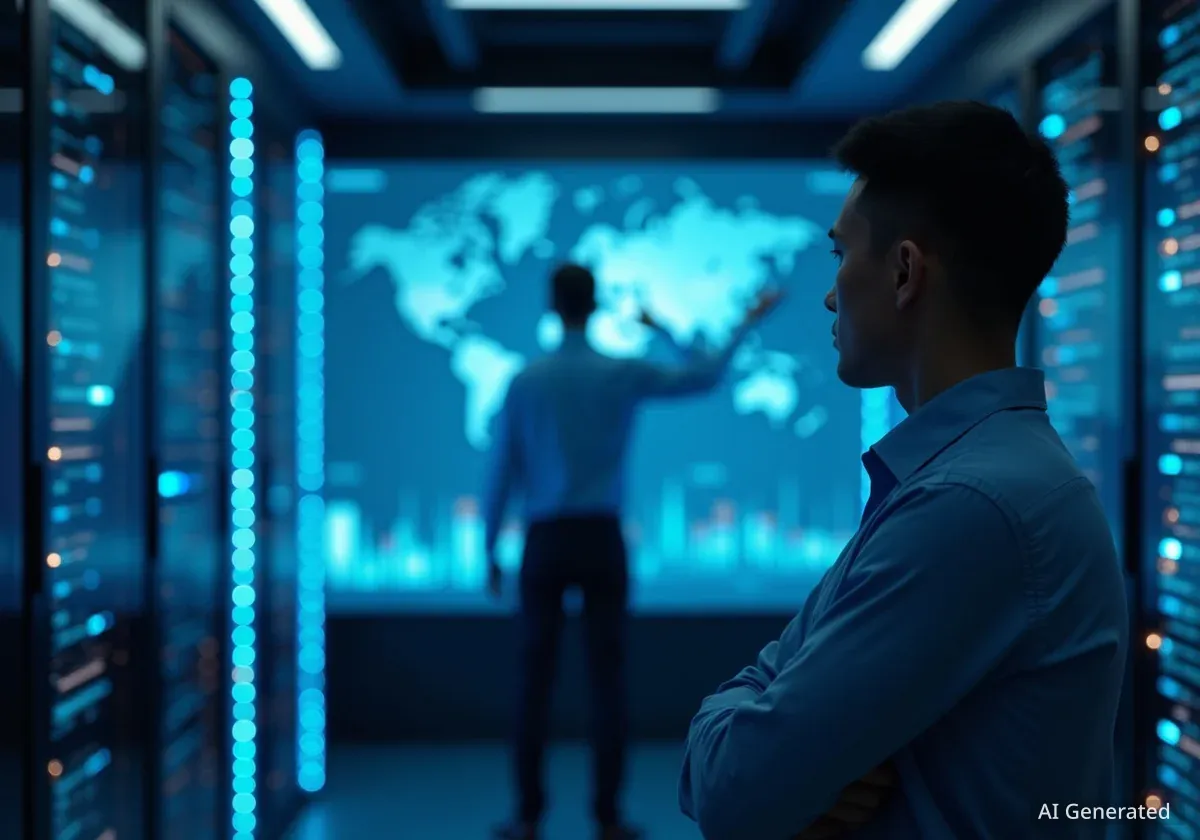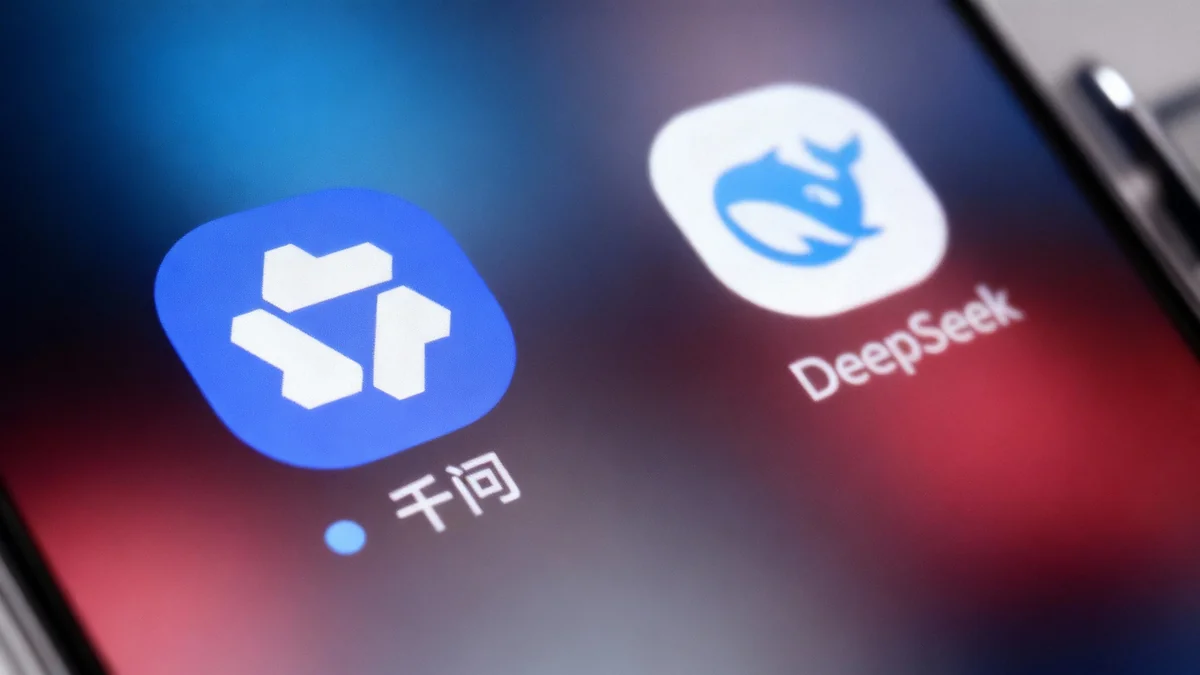Otter.ai, a company widely recognized for its AI-powered meeting transcription service, has announced a significant expansion of its product offerings. The Silicon Valley-based firm has launched a new suite of tools specifically designed for enterprise customers, signaling a strategic move to reposition itself from a simple notetaker to a comprehensive corporate knowledge management system.
The new products aim to harness the vast amount of information generated in business meetings and make it accessible across an organization. This initiative is intended to help companies break down internal information barriers and derive greater value from their conversational data.
Key Takeaways
- Otter.ai has released a new suite of enterprise tools, including an API for custom integrations and an AI agent for searching meeting data.
- The company's goal is to transition from a meeting transcription service into a centralized knowledge base for businesses.
- CEO Sam Liang stated the new tools are designed to eliminate information silos and improve organizational efficiency.
- The launch occurs as the AI transcription market becomes increasingly competitive and amid a class-action lawsuit concerning data privacy.
New Tools for Enterprise Integration
The core of the announcement is a set of new products designed to embed Otter.ai's capabilities more deeply into corporate workflows. These tools are built to capture and organize the intelligence from meetings and make it actionable.
The Otter.ai API and MCP Server
A key component of the new suite is an Application Programming Interface (API). This allows businesses to create custom integrations, connecting their Otter.ai meeting data with other essential business software. For example, information from a sales call could be automatically funneled into platforms like Jira or HubSpot, streamlining project management and customer relationship management.
Additionally, the company introduced an MCP server. This component acts as a bridge, enabling users to connect their company's Otter data to various external AI models. This provides greater flexibility for companies looking to leverage their conversational data with other advanced AI systems.
An AI Agent for Internal Search
Perhaps the most significant new feature is an AI agent capable of searching across a company's entire repository of meeting notes and presentations. This tool functions as an internal search engine for conversations, allowing employees to quickly find information, decisions, and action items discussed in past meetings without having to sift through individual transcripts.
The Crowded AI Market
When Otter.ai was founded in 2016, the market for AI meeting transcription was relatively small. However, the surge in AI development since 2022 has led to a proliferation of competitors, including startups like Granola and Circleback, as well as established players like Fireflies. This competitive pressure likely influenced Otter.ai's strategic shift toward a more comprehensive enterprise solution.
From Notetaker to Knowledge Base
CEO Sam Liang has framed this launch as the next evolutionary phase for the company. He emphasized that the goal is to move beyond the simple act of recording meetings and instead create a durable, searchable record of corporate knowledge.
"We are evolving from a meeting notetaker to a corporate meeting knowledge base," Liang told TechCrunch. "This is a system record for conversations. It can help corporations scale their growth and drive measurable business value."
Liang argues that meetings are where a significant portion of a company's most valuable information is created and shared. This includes everything from customer feedback on sales calls to strategic discussions about marketing campaigns. Without a central system to manage this information, it often remains isolated within specific teams or departments.
The Problem of Information Silos
According to Liang, corporate inefficiency often stems from "information silos," where one team is unaware of the activities or decisions of another. This can lead to redundant work and misaligned strategies. The new Otter.ai system aims to address this by making non-confidential information more broadly accessible.
"A lot of times, inefficiency happens because of information silos," Liang explained. "One team doesn’t know what the other team is doing... The idea is to create a permission system so that you know most of the [nonconfidential] information is shared as broadly as possible."
Addressing Privacy and Data Concerns
The concept of a company-wide, searchable database of meeting transcripts naturally raises questions about employee privacy and data security. Otter.ai has stated that its system includes access controls, allowing users to restrict access to meetings that contain sensitive information.
Not every meeting recorded with Otter.ai will be automatically added to the central knowledge base. Companies and individual users will have the ability to designate certain conversations as private or limited-access. However, concerns remain about how such a system will handle informal conversations or sensitive topics that may arise unexpectedly during meetings.
Legal and Ethical Challenges
The company is currently facing a class-action lawsuit filed in August, which alleges that Otter.ai recorded private conversations without obtaining user consent and used this data to train its transcription models. This legal challenge highlights the broader privacy issues confronting the AI industry.
While Liang did not comment directly on the specifics of the lawsuit, he positioned the collection of meeting data as a necessary component of the ongoing AI revolution. He suggested that such challenges are not unique to Otter.ai but are faced by all companies in the meeting intelligence space.
"My view is that we are on the right side of history. We’re building this new AI revolution. If you want AI to help, you need to put AI in the meetings," Liang stated, framing data access as essential for AI advancement.
As Otter.ai pushes further into the enterprise market, its ability to balance the quest for a centralized knowledge hub with the critical need for robust privacy protections will be a key factor in its success. The company's new suite of tools represents a clear and ambitious vision for the future of corporate communication, but it also brings complex questions about data governance to the forefront.





